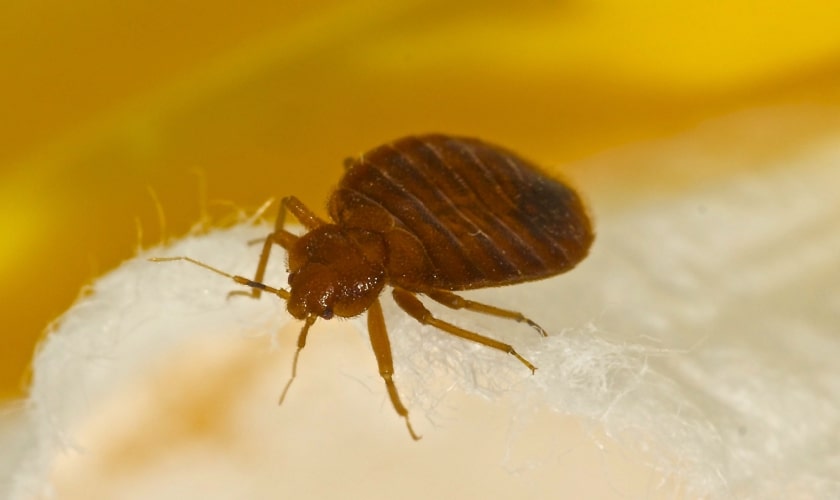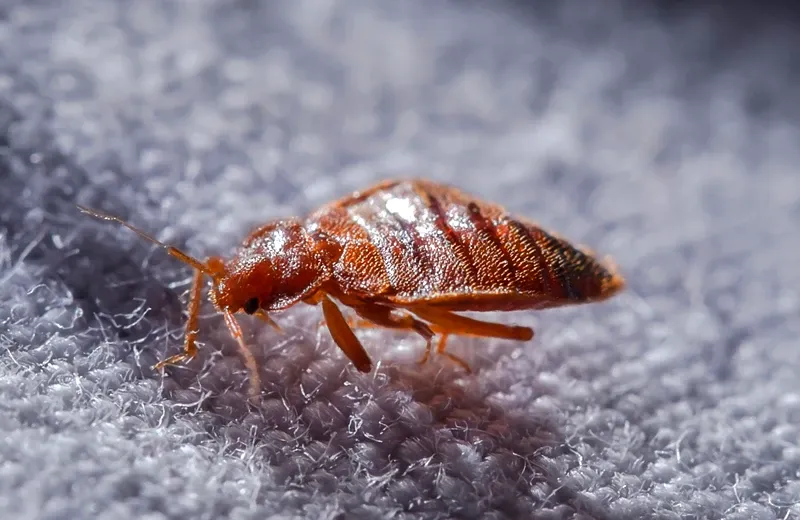A Malfunction of the Numerous Kinds Of Insect Control Solutions
In the world of bug control, a plethora of methods exist to resolve and battle the visibility of unwanted animals. From the traditional use chemical pesticides to extra ingenious biological control solutions, each technique offers distinct advantages and restrictions. As we navigate with the diverse landscape of pest control options, understanding the ins and outs of each method ends up being extremely important in figuring out one of the most efficient training course of action. Keep tuned as we explore the nuanced world of insect control techniques and uncover exactly how each type plays a distinct function in guarding our environments.
Chemical Pesticides
Chemical pesticides are commonly made use of in parasite control to properly eliminate a vast array of bugs and other parasites. These chemicals work by targeting the nerves of the bugs, interrupting their normal features, and eventually leading to their demise. Using chemical pesticides has actually been a staple in the parasite control industry for decades because of their effectiveness and fast results.

Nevertheless, it is essential to use chemical pesticides with care due to their potential damaging effects on the environment and non-target types. Inappropriate application or overuse of these chemicals can bring about air pollution, injury to beneficial pests, and resistance development in insect populaces. As a result, it is important to follow security guidelines and guidelines when using chemical pesticides for parasite control.
Biological Control Techniques
Thinking about the potential ecological effects and threats connected with chemical pesticides, organic control approaches offer a more sustainable technique to handling bug populations. Biological control includes using natural opponents, such as pathogens, predators, and parasites, to reduce bug populaces. This approach is typically a lot more targeted, impacting only the specific bug varieties while lessening injury to useful insects, human beings, and the setting.

Once developed, all-natural adversaries can help manage pest populations continually without the demand for duplicated applications of chemicals. In addition, organic control is frequently a lot more cost-efficient and can assist minimize pesticide resistance in insect populaces over time.

Mechanical Insect Control
Mechanical parasite control involves the physical manipulation or elimination of insects to manage their populations properly. This technique is commonly utilized in combination with various other pest control strategies for detailed bug administration. One common example of mechanical bug control is utilizing traps to record rats or insects. These traps can be established up in tactical places where bugs are understood to dwell, helping to reduce their numbers.
One more mechanical approach is using barriers such as screens, fencings, or nets to obstruct parasites from going into particular locations. By literally protecting against parasites from accessing an area, the probability of infestations or damages can be dramatically lowered. In addition, hand-operated approaches like handpicking pests off structures or plants can be effective for smaller-scale problems.
While mechanical bug control methods can be labor-intensive, they offer a non-chemical option that can be lasting and ecologically pleasant. By targeting insects directly, mechanical control techniques can help keep insect populations in check without depending on chemicals.
Natural Solutions
Making use of natural solutions for parasite control supplies a environmentally friendly and lasting method to managing pest populaces without resorting to chemical interventions. All-natural solutions involve making use of materials derived from plants, minerals, or various other naturally happening resources to deter or remove parasites.
Furthermore, vital oils such as tea tree oil or neem oil have insecticidal homes that this post can efficiently manage bugs while see this site being secure for the setting. An additional all-natural remedy is presenting beneficial insects like ladybugs or hoping mantises to your yard to take advantage of hazardous insects. By including these natural options into pest management techniques, individuals can minimize their dependence on artificial chemicals and promote a much healthier, much more well balanced ecosystem.
Integrated Bug Management
Integrated Bug Monitoring (IPM) is a detailed technique that integrates numerous approaches to successfully regulate pest populations while minimizing dangers to human wellness and the setting. IPM entails the assimilation of several bug control methods such as organic control, environment adjustment, alteration of cultural methods, and making use of immune plant selections. By making use of a combination of these methods, IPM intends to reduce dependence on chemical pesticides, which can have negative influence on environments and human health and wellness.
One secret aspect of IPM is the focus on avoidance. By carrying out procedures to avoid parasite problems before they take place, such as keeping appropriate sanitation and sealing access points, the demand for responsive bug control actions is minimized. Monitoring and normal inspections play a vital duty in IPM, permitting early discovery of pest issues and punctual intervention.
Verdict
In conclusion, the numerous kinds of insect control services provide a variety of options for efficiently managing insect infestations. Chemical pesticides give fast obliteration but might have environmental risks. Organic control methods use natural killers to control insects. Mechanical parasite control includes physical barriers or catches. All-natural remedies supply safe alternatives. Integrated Insect Administration integrates numerous techniques for an alternative strategy to pest control. Each approach has its very own benefits and drawbacks, and selecting one of the most suitable option depends on the particular insect trouble at hand.
Chemical chemicals are frequently utilized in bug control to efficiently eliminate a broad variety of pests and various other parasites.Mechanical pest control includes the physical manipulation or elimination of bugs to handle their populaces effectively browse around these guys (Kings pest control Cincinnati Ohio).Using natural solutions for pest control uses a eco-friendly and lasting strategy to handling insect populations without resorting to chemical treatments.Integrated Pest Management (IPM) is a thorough method that incorporates different techniques to properly manage pest populaces while reducing dangers to human wellness and the atmosphere.In final thought, the various kinds of pest control services provide a variety of options for successfully taking care of bug problems